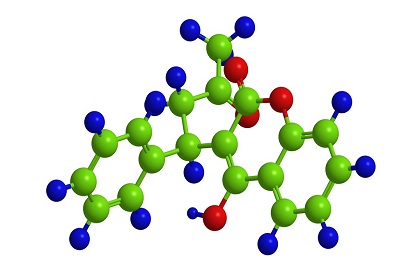Search
What causes chest pain?
Chest pain can be caused by a range of conditions, from not serious to life-threatening. Chest pain can be a symptom of a digestive problem, such as acid reflux or a stomach ulcer. An anxiety attack or a strong emotion, such as anger, can also cause chest pain. Infection, inflammation, or a fracture in the bones or cartilage in your chest can cause pain or discomfort. Sometimes chest pain or pressure is caused by poor blood flow to your heart (angina). Chest pain may also be caused by life-threatening conditions such as a heart attack or blood clot in your lungs.
What other symptoms might I have with chest pain?
• A burning feeling behind your breastbone
• A racing or slow heartbeat
• Fever or sweating
• Nausea or vomiting
• Shortness of breath
• Discomfort or pressure that spreads from your chest to your back, jaw, or arm
• Feeling weak, tired, or faint
How is the cause of chest pain diagnosed?
Your doctor will examine you. Describe your chest pain in as much detail as possible. Tell him or her where your pain is and when it began. Tell the provider if you notice anything that makes the pain worse or better. Tell him or her if it is constant or comes and goes. Your doctor will ask about any medicines you use and medical conditions you have. He or she will also examine you. You may also need any of the following tests:
• An EKG is a test that records your heart's electrical activity
• Blood tests check for heart damage and signs of a heart attack
• An echocardiogram uses sound waves to see if blood is flowing normally through your heart
• An ultrasound, x-ray, CT, orMRI scan may show the cause of your chest pain. You may be given contrast liquid to help your heart show up better in the pictures. Tell the doctor if you have ever had an allergic reaction to contrast liquid. Do not enter the MRI room with anything metal. Metal can cause serious injury. Tell the doctor if you have any metal in or on your body
• An endoscopy may be done to check for ulcers or problem with your esophagus
How is chest pain treated?
Medicines may be given to treat the cause of your chest pain. Examples include pain medicine, anxiety medicine, or medicines to increase blood flow to your heart. Do not take certain medicines without asking your doctor first. These include NSAIDs, herbal or vitamin supplements, or hormones (estrogen or progestin).
What are some healthy living tips?
The following are general healthy guidelines. If your chest pain is caused by a heart problem, your doctor will give you specific guidelines to follow.
• Do not smoke. Nicotine and other chemicals in cigarettes and cigars can cause lung and heart damage. Ask your doctor for information if you currently smoke and need help to quit. E-cigarettes or smokeless tobacco still contain nicotine. Talk to your doctor before you use these products
• Eat a variety of healthy, low-fat foods. Healthy foods include fruits, vegetables, whole-grain breads, low-fat dairy products, beans, lean meats, and fish. Ask for more information about a heart healthy diet
• Ask about activity. Your doctor will tell you which activities to limit or avoid. Ask when you can drive, return to work, and have sex. Ask about the best exercise plan for you
• Maintain a healthy weight. Ask your doctor how much you should weigh. Ask him or her to help you create a weight loss plan if you are overweight
Call 120 if:
You have any of the following signs of a heart attack:
• Squeezing, pressure, or pain in your chest that lasts longer than 5 minutes or returns
• Discomfort or pain in your back, neck, jaw, stomach, or arm
• Trouble breathing
• Nausea or vomiting
• Lightheadedness or a sudden cold sweat, especially with chest pain or trouble breathing
When should I seek immediate care?
• You have chest discomfort that gets worse, even with medicine
• You cough or vomit blood
• Your bowel movements are black or bloody
• You cannot stop vomiting, or it hurts to swallow
When should I contact my doctor?
• You have questions or concerns about your condition or care
CARE AGREEMENT:
You have the right to help plan your care. Learn about your health condition and how it may be treated. Discuss treatment options with your caregivers to decide what care you want to receive. You always have the right to refuse treatment.
© 2017 Truven Health Analytics LLC All illustrations and images included in CareNotes® are the copyrighted property of A.D.A.M., Inc. or Truven Health Analytics.
Click the link for more information on Family Medicine Clinical Service
Click the link for more information on Emergency Medicine Clinical Service
Click the link for more information on Nutrition Health Service
Click the link for more information on Cardiovascular Medicine Clinical Service











